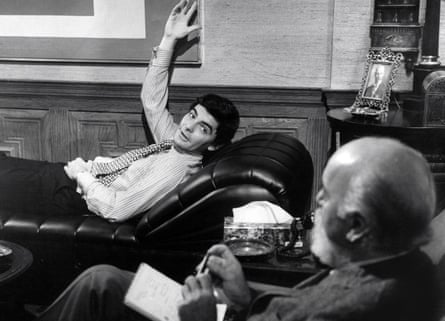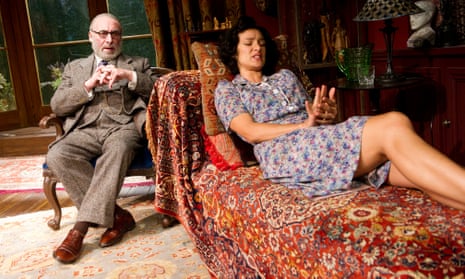What defines the great texts by great thinkers is that they can be read over and over again, every time provoking new thoughts. This is surely the case with Sigmund Freud’s Three Essays on the Theory of Sexuality from 1905. We have helped produce the new translation of this work, the first in English, by an author whose work transformed understanding of human psychology. (The book has been available before, but only in a 1924 edition that Freud had revised extensively.) Together with the monumental Interpretation of Dreams, the Three Essays is not only one of the founding texts of psychoanalysis, it has also affected ideas of sexuality as no other text.
Interestingly enough, the first edition outlines a theory of sexuality that is in many respects at odds with the later more “hetero-normative” (oedipal) additions. This more liberal – and, in a sense, queer – theory was “repressed” by the successive editions and later interpretations. This fresh translation sheds a new light on Freud’s work from the same period. More importantly, undoing this “repression” strengthens once again Freud’s importance for contemporary discussions of sexual identity and gender.
The following are our favourite good reads in psychoanalysis and the fiction associated with Freudian ideas, and show a tradition that remains as illuminating as ever.
1. Freud by Jonathan Lear
Probably the best philosophical introduction into the central ideas and concepts of Freud’s theories and practice, which continue to have significance for contemporary thought on the human being in relation to itself and to the world. It covers his theories of the unconscious, dreams, transference, mental functions, the structure of the psyche and of course the radical new conception of sexuality in terms of “drive” and no longer in terms of “instinct”.
2. Hamlet by William Shakespeare
The doubts, ambivalence and hesitations of the Danish prince have intrigued many, including Freud himself. The murderous desires and fantasies that are openly displayed in the Oedipus myth are more repressed in Hamlet, whose conscience made him a coward – but he is ultimately also a very dangerous man, not only for his uncle and rivals but also for his beloved Ophelia. It is Hamlet who shows us what the oedipus complex truly means.
3. The Sound and the Fury by William Faulkner
Because of its stream-of-consciousness narration, this novel is linked to a literary era – much indebted to Freud – in which characters’ inner lives were given intense attention. Conscious thoughts appear to grow out of fantasies, ideas, memories and perceptions. Faulkner’s brilliant story centres on the dynamics between three brothers, the mentally damaged Benjy, the cynical and depressed Quentin and the sardonic Jason. Through their minds we witness the slow but inevitable dissolution – over the course of some 30 years – of the southern aristocratic Compson family.
4. The History of Sexuality, Part One by Michel Foucault
This book is one of the most influential contemporary texts on sexuality. It is often read as a violent critique of psychoanalysis. Foucault’s version of sexuality is not a natural force that inhabits us, but rather shows our desires constituted in the course of historically specific social practices. Psychoanalysis is such a practice. However, the reference to a “body of pleasures” that underlies these social structures reminds us of the way Freud thematises infantile sexuality in the first edition of the Three Essays. There it can be identified with non-functional bodily pleasures that can be described in physiological terms.
5. Between Seduction and Inspiration: Man by Jean Laplanche
The infant’s encounter with adult sexuality plays a formative role in constructing their sexuality. Indeed, sexuality is not just “in” me, it also comes from the outside as an enigmatic message sent by the other. Whether she likes it or not, whether he knows it or not, the adult confronts the little child with enigmatic sexual messages – a passionate kiss, a pregnant mother etc – that the child can only partially integrate in its own experience. This “fundamental anthropological situation” turns the sexual (sensual) body into a question mark that can never completely be overcome.

6. Freud: Biologist of the Mind by Frank J Sulloway
Sulloway reconstructs in a remarkable way the biological foundations of Freudian theory, which absorbed many lessons from Darwin alongside the influence of the enigmatic Wilhelm Fliess, who was Freud’s intellectual companion until the beginning of the 20th century. Psychoanalysis emerges not so much as Darwinian psychology, but a psychology for Darwinism.
7. Portnoy’s Complaint by Philip Roth
The monologue of a Jewish bachelor who – in sessions with his psychoanalyst Dr. Spielvogel (what’s in a name?) – bluntly talks in detail about his often perverse sexual strivings. In 1969, this novel caused controversy in particular because of the masturbation scenes and the frank language. No times a-changin’ here: in his Victorian days Freud met similar objections on the same issues.
8. The Emergence of Sexuality by Arnold Davidson
Psychoanalysis can only be properly understood in relation to the psychiatry and sexology of its time. Inspired by Foucault, Davidson discusses the emergence of psychosexuality and of a “psychiatric style of reasoning” that goes along with it and that places “psychic health” over and against psychopathology. Psychoanalysis was on the one hand instrumental to this emergence. But it promised at the same time a radical break with this style of reasoning. From then on, the pathological – in particular the sexual perversions – are part and parcel of normality. Psychoanalysis is born out of this ambiguous relation to psychiatry.
9. When Nietzsche Wept by Irvin D Yalom
It is 1882, just before the birth of psychoanalysis. Lou Andreas-Salomé begs Josef Breuer, Freud’s companion in the early studies on hysteria, to help a brilliant but desperate and suicidal philosopher named Friedrich Nietzsche. The plot of the novel, which blends fact and fiction, develops into Breuer discovering the psychoanalytic “talking cure” and the importance of “chimney sweeping”, and Nietzsche finding the inspiration – the “will to power” – for his rendezvous with Zarathustra. It’s a moving story about an authentic friendship that never took place.
10. Eros and Civilisation by Herbert Marcuse
Published in 1955, Marcuse’s text is a landmark in postwar philosophical reflection on Freudian theory. The book is basically a Marxist reading of the conflict between man’s sexual drive and satisfaction (eros) and the repressive capitalist society that demands performance in useful and “neurotic” productiveness (labour). Only in a future socialist society labour will we be liberated from repressive forces and liberated to libidinal pleasure. In the society to come, all labour is hobby and play.
- Three Essays on the Theory of Sexuality by Sigmund Freud, translated by Ulrike Kistner and introduced by Philippe Van Haute and Herman Westerink is published by Verso, priced £14.99.








Comments (…)
Sign in or create your Guardian account to join the discussion